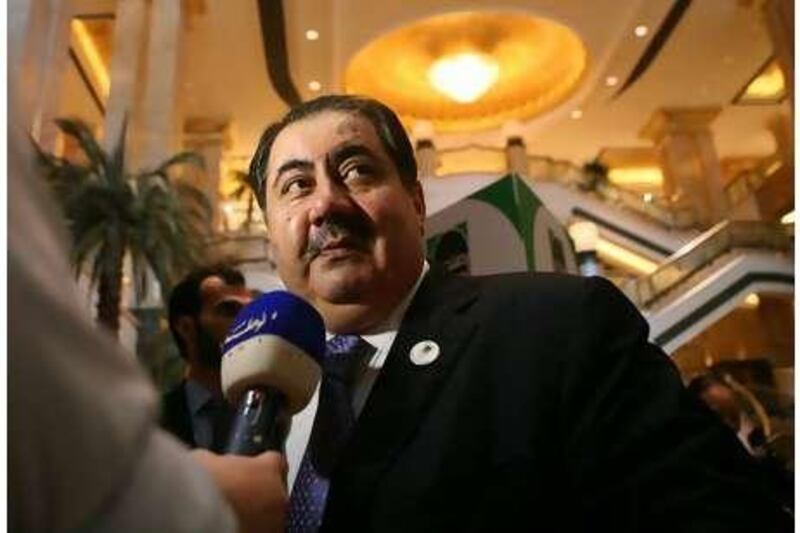ABU DHABI // Iraq's foreign minister has said the absence of a significant Arab diplomatic presence in Baghdad in the past five years was a "big mistake" and recent moves to rectify the situation were crucial to the country's stability. During a visit to Abu Dhabi yesterday, Hoshyar Zebari said the resumption of diplomatic ties with several Arab countries in recent months had helped foster his government's legitimacy. "We didn't give up hope that the Arab brothers will come back to Baghdad," he said. "This will boost the Iraqi government's feeling that it's part of the area that it belongs to. "The absence of Arabs from Iraq was a big mistake. It is not right and it is not acceptable. "We have endured the patience of Job throughout the last five years. Opening embassies will contribute to stability. Opening embassies is important." He said a recent visit to Baghdad by Sheikh Mohammed bin Zayed, Crown Prince of Abu Dhabi, carried political support to his country. In June, the UAE named Abdullah al Shehi as its new ambassador to Baghdad, making it the first GCC nation to reopen its embassy in the Iraqi capital since the fall of Saddam Hussein. Jordan, Kuwait and Bahrain then followed the UAE lead by naming their own. Ahmed Aboul Gheit, the Egyptian foreign minister, visited Baghdad this month, promising to reopen an embassy soon. In 2005, Egypt's top diplomat to Baghdad, Ihab al Sharif, was abducted and murdered by insurgents. Arab officials have often cited the security situation in Baghdad as the reason behind their limited relationship with the new democracy. But other governments, including that of the UAE, maintain they have a strong relationship with the young administration in Baghdad. A number of Iraqi legislators who had visited several Arab countries, claimed that Arab officials were concerned about taking further steps in building relations with Iraq because of its "allegiance" to Iran. Mr Zebari said Iranian influence in Iraq was natural. "Iran has strong diplomatic clout in Iraq through its embassy, consulates and visits," he said. "Iran is our strong neighbour and we have a strong relationship with it. It has the right to be present in Iraq." Speaking of the UAE's relationship with Iraq, the foreign minister said: "Iraq and the Emirates have wide-ranging levels of economic, political and investment co-operation. "Iraq will become, after it is fully stable, a very major workshop in the Middle East and that's why the Emirati [investors] will be strongly involved here." This month, Al Maabar International Investments, an Abu Dhabi-based property developer, announced plans for a US$10 billion (Dh36.7bn) project in Baghdad, to include residential areas, hotels and hospitals. The Iraqi government announced earlier this month that it was preparing a security agreement that would legitimise the US presence in Iraq beyond the UN-imposed Dec 31 deadline. The foreign minister said the security situation in Iraq was improving but added: "It is still fragile. Unless we conclude the [security] agreement [with the US], the security will not be durable. That is why we say it is fragile. "If the agreement is ratified we expect a full withdrawal of the US troops by 2011," Mr Zebari said, adding that supporters of the cleric Muqtada al Sadr, who oppose the deal, have limited numbers in the parliament and their opposition would not affect the vote. Mr Zebari said local elections would be held before the end of January. "They are very important. They will change the political scene in Iraqi provinces. There will be fierce competition with 400 entities already registered, political parties and civil bodies." Mr Zebari was visiting Abu Dhabi to participate in the Future Forum conference, which was attended by foreign ministers and senior officials from the Middle East, North Africa, South Asia, the subcontinent and the Group of Eight industrial nations. mhabboush@thenational.ae
Iraq seeks backing of Arab 'brothers'

More from the national





